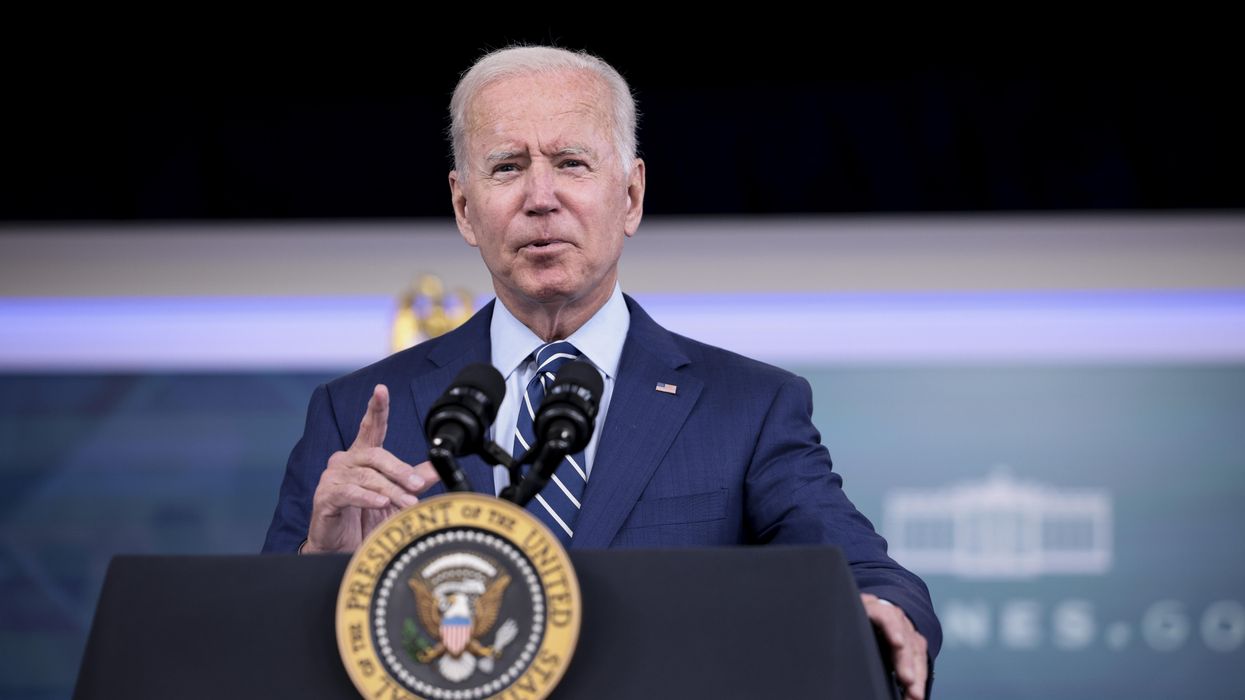While federal electoral reform legislation languishes in Congress, the executive branch is taking small but significant steps toward promoting access to the ballot box.
In March, President Biden issued an executive order asking federal agencies to evaluate how they can, within their purview of the law, encourage voter registration and participation. The deadline for agencies to submit their proposals was Sept. 23, and this week the White House announced the first set of plans.
Here's how 14 federal departments and agencies plan to promote voter participation and access:
- The Agriculture Department will facilitate voting information for Americans living in rural areas who interact with their services.
- The Department of Defense will provide comprehensive election information in multiple languages, particularly about mail voting, to military service members and civilians stationed away from home or overseas.
- The Department of Education will create a toolkit containing civic education resources and strategies for K-12 and higher education institutions.
- The General Services Administration will update vote.gov, the federal voter registration portal, to be more user-friendly for all Americans.
- The Department of Health and Human Services' Administration for Community Living will establish a new voting information hub for older Americans and disabled individuals. The Indian Health Service will assist patients with voter registration. And Biden's budget calls for a 25 percent increase in grants for services that will help people with disabilities fully participate in the electoral process.
- The Department of Homeland Security will encourage state and local governments, as well as nonprofit organizations, to register the hundreds of thousands of individuals who become naturalized citizens each year and provide these new citizens with voting information. DHA will also provide voting information and resources to those impacted by natural disasters or other emergencies.
- The Department of Housing and Urban Development will instruct 3,000 public housing authorities that manage 1.2 million units to provide voter registration information to residents. The department will also work to improve voting access for people experiencing homelessness.
- The Institute of Museum and Library Services will create and promote a civic engagement toolkit that libraries, museums, and heritage and cultural institutions can use.
- The Department of the Interior will share voter registration information with schools operated by the Bureau of Indian Education and tribal colleges and universities, serving about 30,000 students. The department will also promote tribal colleges and universities as voter registration agencies.
- The Justice Department has created an online resource with state-specific registration and voting information, details on federal voting rights laws and instructions on how to report potential voting rights violations. DOJ will also provide voting information to people in federal custody and facilitate voting for those still eligible.
- The Department of Labor will encourage states to make the more than 2,400 American Job Centers across all 50 states official voter registration agencies.
- The Department of Transportation will issue guidance to more than 1,150 rural public transit systems and more than 1,000 urban public transit systems to consider providing free and reduced fare service on Election Day and distributing voting information in stations. The department will also work to mitigate traffic and construction that impacts routes to the polls, particularly in underserved communities.
- The Treasury Department will include voting information in its direct deposit campaigns for Americans who receive Social Security, Veterans Affairs and other federal benefit payments.
- The Department of Veterans Affairs will provide voting information and assistance to medical center patients and residents of nursing homes and treatment centers.
More initiatives from federal agencies will be rolled out in the coming months.
Before the agencies submitted their plans to the White House, the Campaign Legal Center outlined recommendations and best practices for promoting voter access.
Demos, a progressive think tank that advocates for democracy reform, celebrated this step forward, while also pushing for further action from the federal government.
"The actions outlined today are a good start and, with additional consultation, creative thinking, and commitments, have the potential to transform how and where people register to vote all across America. This is especially significant in Black, brown and low-income communities, where we see notably lower rates of voter registration," said Laura Williamson, senior policy analyst at Demos.
When announcing these plans for promoting electoral participation, Vice President Harris also emphasized the importance of Congress passing the Freedom to Vote Act and the John Lewis Voting Rights Advancement Act. However, with the filibuster still intact, both bills have a slim chance of success in the Senate.
"Our nation and democracy are stronger when everyone participates, and weaker when anyone is left out," Harris said. "The president and I will help ensure these plans are fully implemented, and we will continue to work closely with these agencies to bring a whole-of-government approach to making voting accessible for all Americans."






















Trump & Hegseth gave Mark Kelly a huge 2028 gift